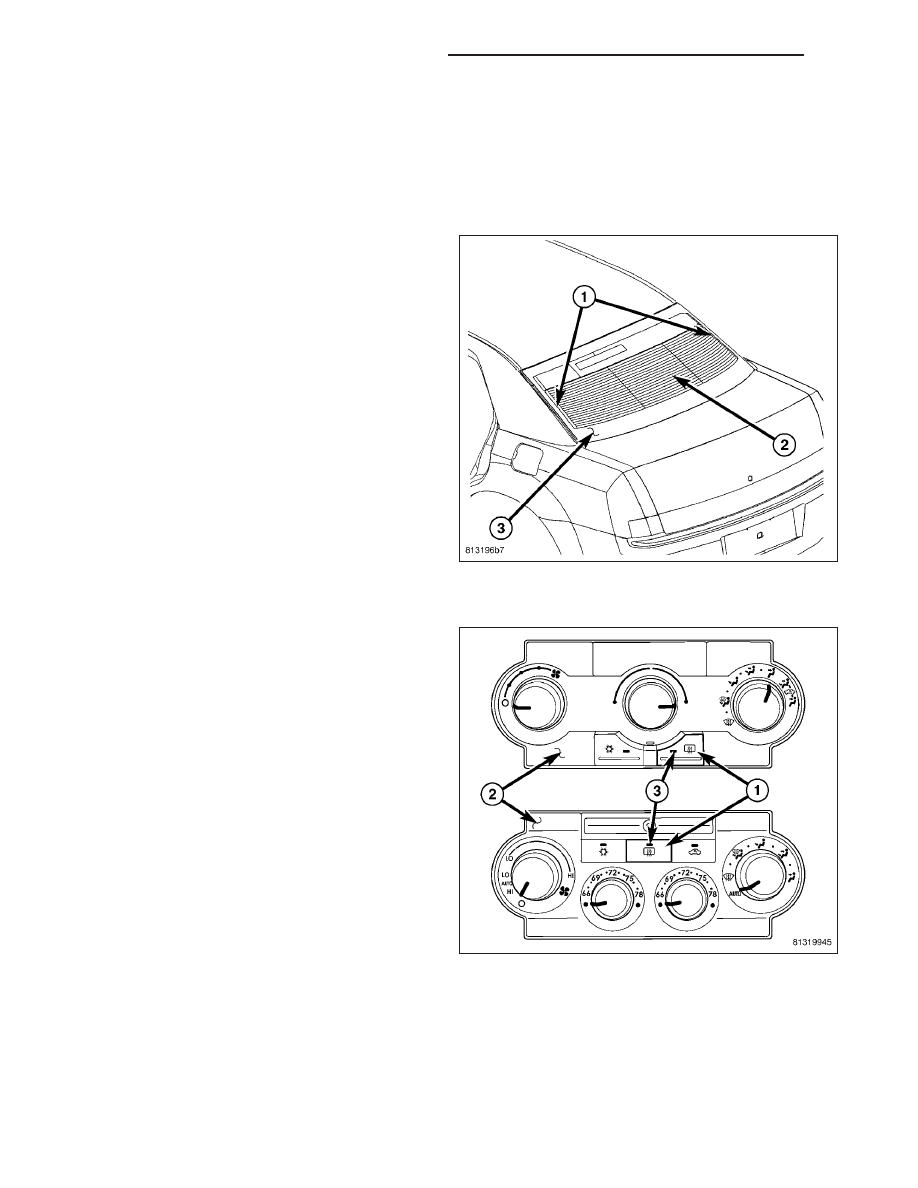Chrysler 300/300 Touring/300C, Dodge Magnum. Manual - part 430

HEATED GLASS - SERVICE INFORMATION
DESCRIPTION
CAUTION: Grid lines can be damaged or scraped off with sharp instruments. Care should be taken in clean-
ing glass or removing foreign materials, decals or stickers. Normal glass cleaning solvents or hot water
used with rags or toweling is recommended.
The rear window defogger system, also known as
electric backlight (EBL), consists of two vertical bus
bars (1) linked by a series of grid lines (2) fired onto
the inside surface of the rear window (3).
The EBL system is turned On or Off by a switch and
timing circuit integral to the A/C-heater control located
at the center of the instrument panel.
Circuit protection is provided by two cartridge fuses
located in the power distribution center (PDC). One
fuse is for the heated rear window grid circuit and the
other fuse is for the heated outside mirror grid circuit,
when equipped.
OPERATION
The electric backlight (EBL) system is controlled by a
momentary switch (1) located in the A/C-heater control
(2) on the instrument panel. When the rear window
defogger switch is pressed to the On position, the
A/C-heater control energizes the rear window defog-
ger (EBL) relay and battery current is then directed
through the relay and to the rear window defogger grid
lines and the heated outside rear view mirrors, when
equipped. The grid lines heat the glass to help clear
the rear window and outside mirror surfaces of fog or
frost.
An amber indicator (3) in the rear window defogger
switch will illuminate to indicate when the EBL system
is turned on. The A/C-heater control contains the EBL
system control circuitry including the timer logic.
NOTE: The EBL system turns off automatically
after ten minutes of initial operation. Each follow-
ing activation cycle of the EBL system will last five
minutes.
The EBL system will be automatically turned off after an initial programmed time interval of about ten minutes. After
the initial time interval has expired, if the rear window defogger switch is turned on again during the same ignition
cycle, the EBL system will automatically turn off after about five minutes. The EBL system will automatically shut off
if the ignition switch is turned to the Off position, or it can be turned off manually by pressing the rear window
defogger switch a second time.
Repair of the rear window defogger grid lines, bus bars, terminals or pigtail wires can be accomplished using the
Mopar Rear Window Defogger Repair Kit (Part Number 04549275) or equivalent (Refer to 8 - ELECTRICAL/
8G - 2
HEATED GLASS - SERVICE INFORMATION
LX